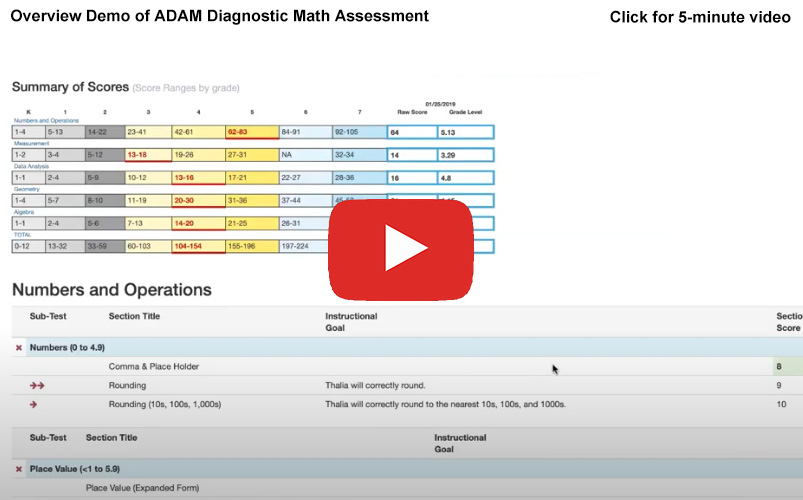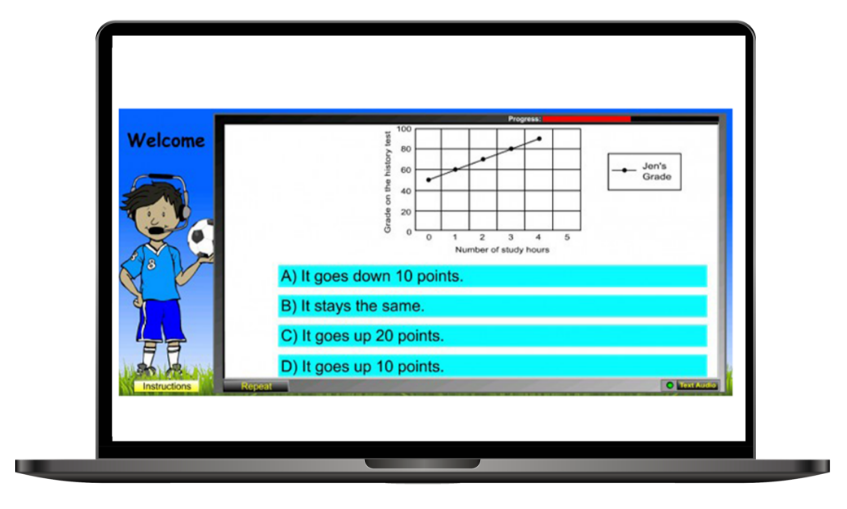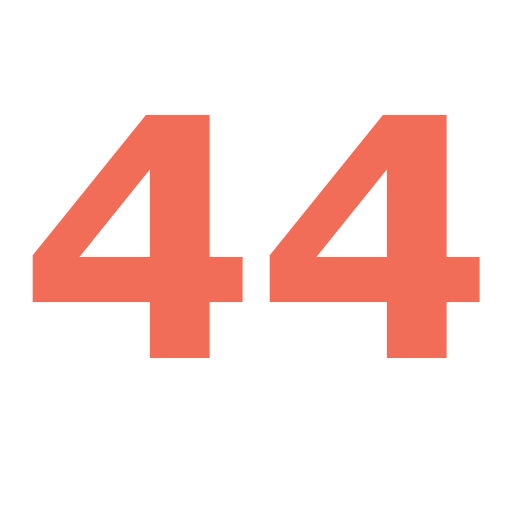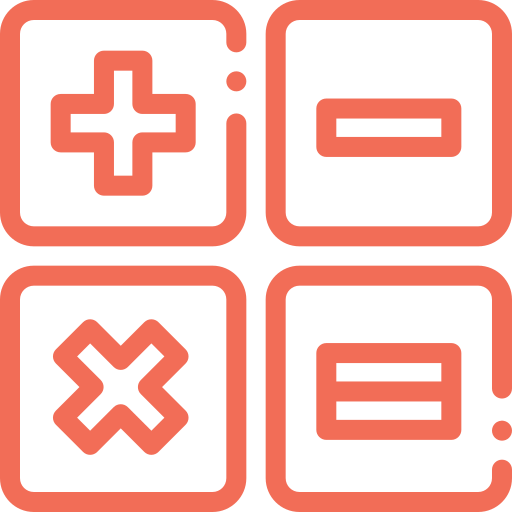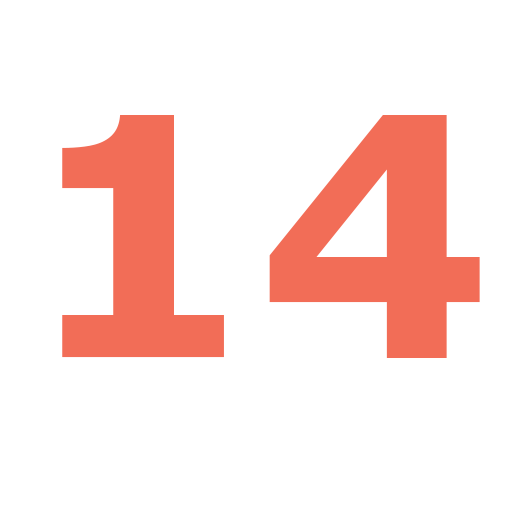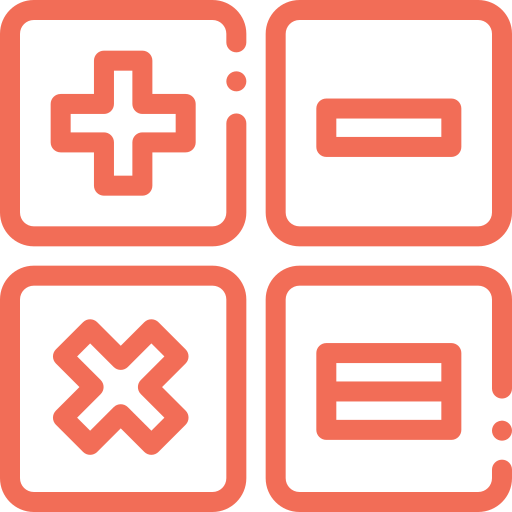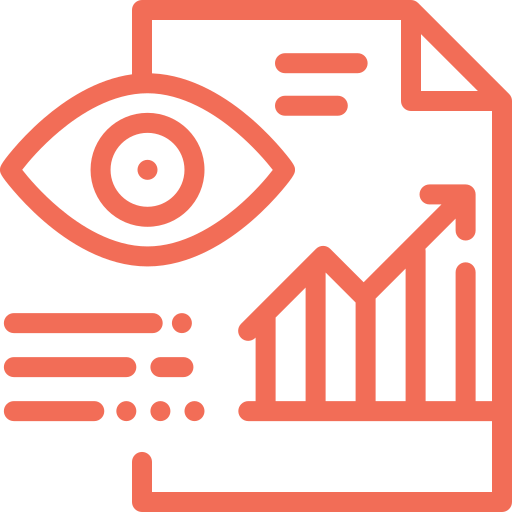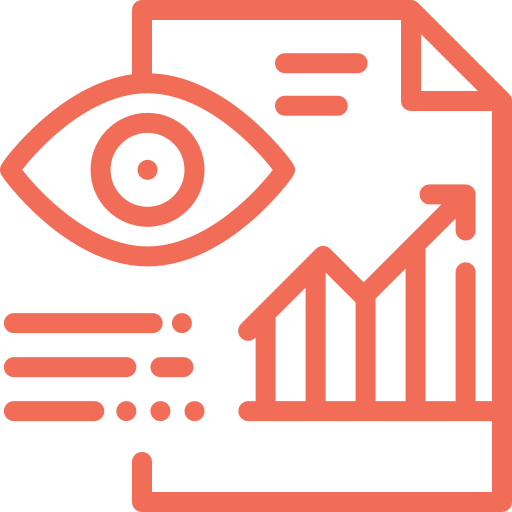Math Diagnostic Assessments
Actionable student data for accelerated learning

Easily measure and understand student math skills with research-based adaptive assessments
Let’s Go Learn’s diagnostic math assessments thoroughly evaluate each student’s mathematical understanding from K-7 foundational skill through Algebra I/Integrated Math, regardless of the student’s actual grade level.
By employing revolutionary adaptive logic, Let’s Go Learn’s math assessments maximize the information obtained about each student while minimizing test-taking time and anxiety. The granular data provides educators and teachers with a comprehensive picture of each learner’s strengths and weaknesses at a skill and concept level. This translates to a prescriptive path for true personalized learning. For students with IEPs, this means providing automated Specially Designed Instruction (SDI) that both eliminates learning gaps and accelerates learning.
Next-generation platform flexibility to support any initiative
- Targeting of foundational skills/concepts to scaffold for core lessons to be taught
- Actionable data for PLCs to spot and address curricular gaps, saving time
- Diagnostic data to allow principals to become instructional leaders
- Prescriptive data providing standards and deeper analysis of students
- Identification of gaps for true automated online SDI for students with IEPs at all instructional grade levels
- Intervention for students and data for teachers to understand why students are struggling
- Skills-based formative tests for automatic student progress monitoring
- Smooth, seamless progress monitoring to measure growth and for SPED compliance
- Efficient placement of students entering middle or high school
Data to support all stakeholders: parents, teachers, principals, and administrators
When you start with quality granular data, you can support everyone.
- Granular data supports students, teachers, special educators
- Slightly rolled-up data supports PLCs and school principals
- Aggregated summative data supports administrators
When you start with summative data, only #3 above is supported. Let’s Go Learn’s web-based data warehouse supports massive data crunching, and its powerful Learning Management System (LMS) for teachers tracks the most granular analysis of a student’s abilities in mathematics. Individual student and classroom reports are instantly available for teachers to inform small-group instruction, objectively share results with parents and prescribe home activities, and easily deliver accurate measures of student progress and standards achievement to schools and districts.
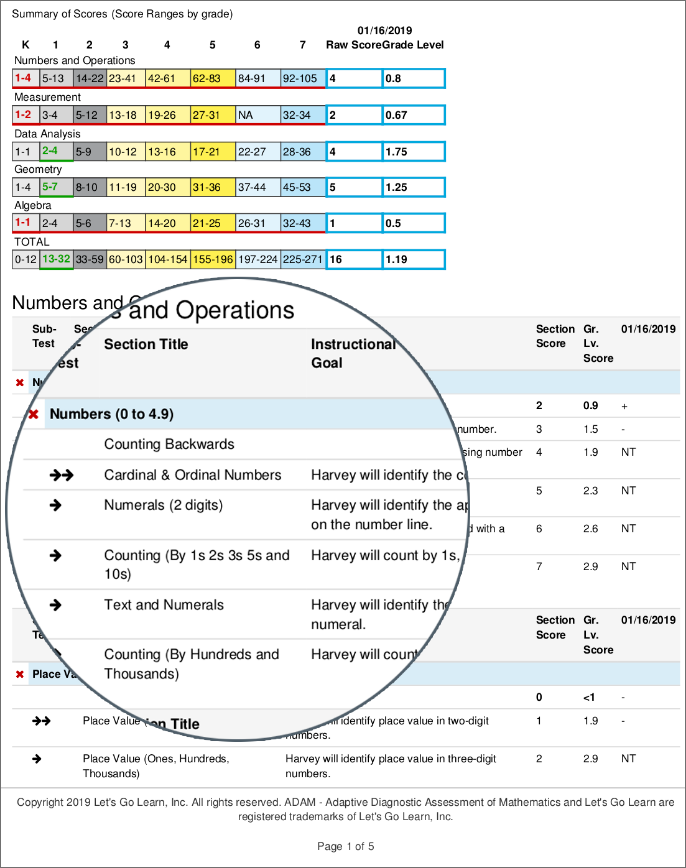
Math Diagnostic Assessments
ADAM
(Adaptive Diagnostic Assessment of Mathematics) is a K-7/8 comprehensive diagnostic assessment of mathematics. Available in English and Spanish.
DOMA Pre-Algebra
(Diagnostic Online Math Assessment) provides a detailed examination of students’ preparedness for entering Algebra I.
DOMA Algebra
(Diagnostic Online Math Assessment) evaluates skills taught during the crucial Algebra I year.


